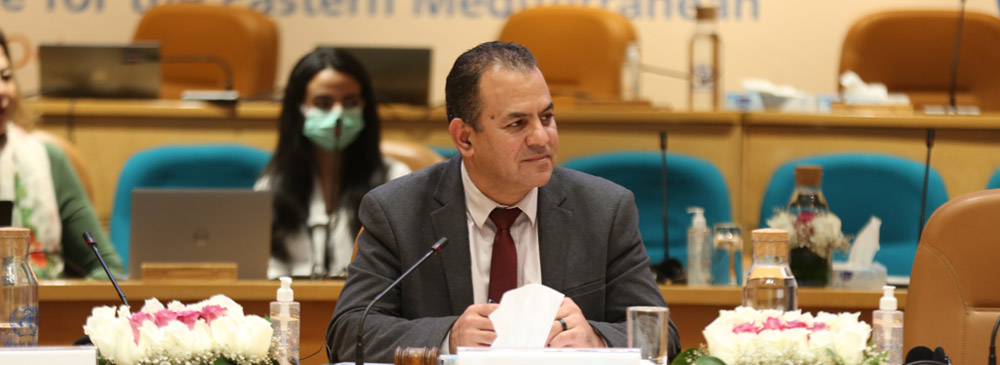
12 October 2022, Cairo – Regional health policy-makers and experts have paved the way towards a regional agenda on priorities for advancing health systems participatory governance.
Discussions took place during a side event on “Institutionalizing Participatory Governance in the Eastern Mediterranean Region” organized by the health system governance team as part of the 69th session of the WHO Regional Committee for the Eastern Mediterranean.
The priorities will inform a resolution on the subject, scheduled to be considered at the 77th World Health Assembly in 2024.
Dr Rana Hajjeh, Director of Programme Management at the WHO Regional Office for the Eastern Mediterranean, set the side event in motion on behalf of the Regional Director by highlighting the challenges posed to health systems by COVID-19 and the lessons learned, particularly the need to establish and institutionalize health systems governance mechanisms that foster public trust in governments and public institutions during emergency responses and beyond.
“We learned the hard way during COVID-19 that trust cannot be gained during health emergencies if there are no sustainable participatory governance mechanisms to ensure regular government interactions with key stakeholders within the public and private sectors, both providers and beneficiaries,” said Dr Hajjeh.
“The objective of these mechanisms is to bridge the gap between policy-makers’ perspectives and the experiences and needs of communities, ultimately shaping health policies and decisions that are informed by people’s voices and needs.”
Global commitments to advancing participatory governance
During the side event, attendees were introduced to regional governance challenges, bottlenecks and gaps, as well as priority areas for action, including strengthening health system governance arrangements, capacities and supportive regulations alongside participatory governance, points that were reemphasized in a global technical paper calling for institutionalizing participatory governance to advance universal health coverage (UHC) and health security.
Attendees also listened to a panel discussion in which countries shared their experiences in establishing and institutionalizing participatory governance arrangements. In their interventions, including through a pre-recorded message by the Minister of Health of Tunisia, the participants reiterated that guaranteeing sustainable participation of citizens in health-related decision-making requires building a common understanding of participatory governance mechanisms, providing clear engagement criteria and institutionalization.
That participatory governance mechanisms play a vital role in UHC and health security has been reaffirmed in various national, regional and international resolutions and declarations, including target 16.7 in the sustainable development agenda which calls for ensuring responsive, inclusive, participatory and representative decision-making at all levels.
Similarly, Member States in the Political Declaration of the High-Level Meeting on Universal Health Coverage committed to “engage all relevant stakeholders, including civil society, private sector, parliamentarians and academia, as appropriate, through the establishment of participatory and transparent multi-stakeholder platforms and partnerships”.


